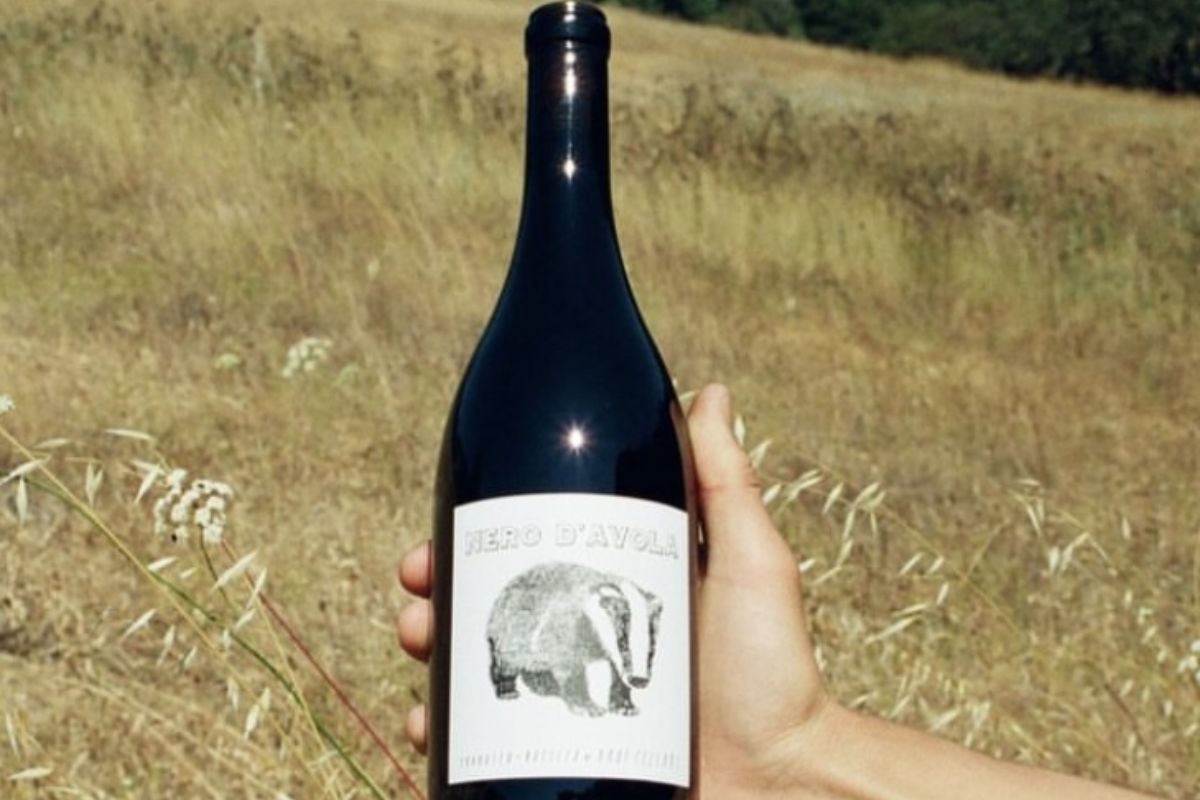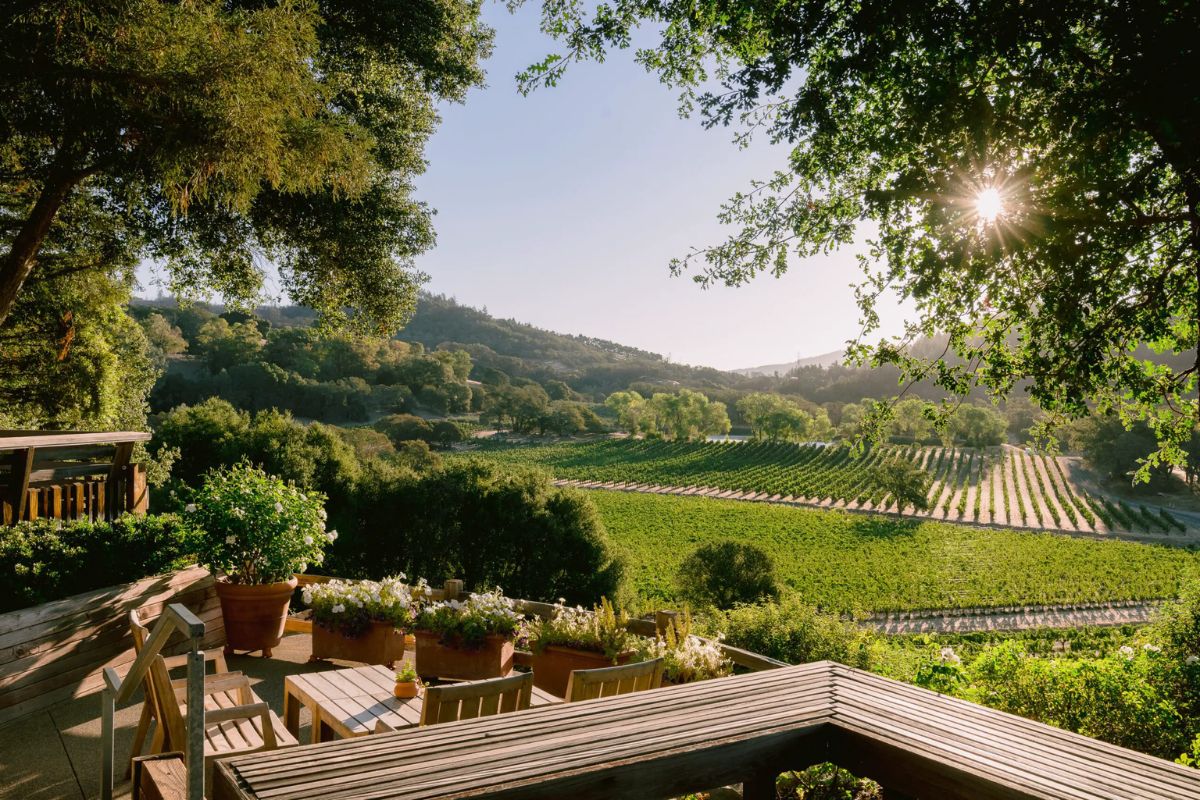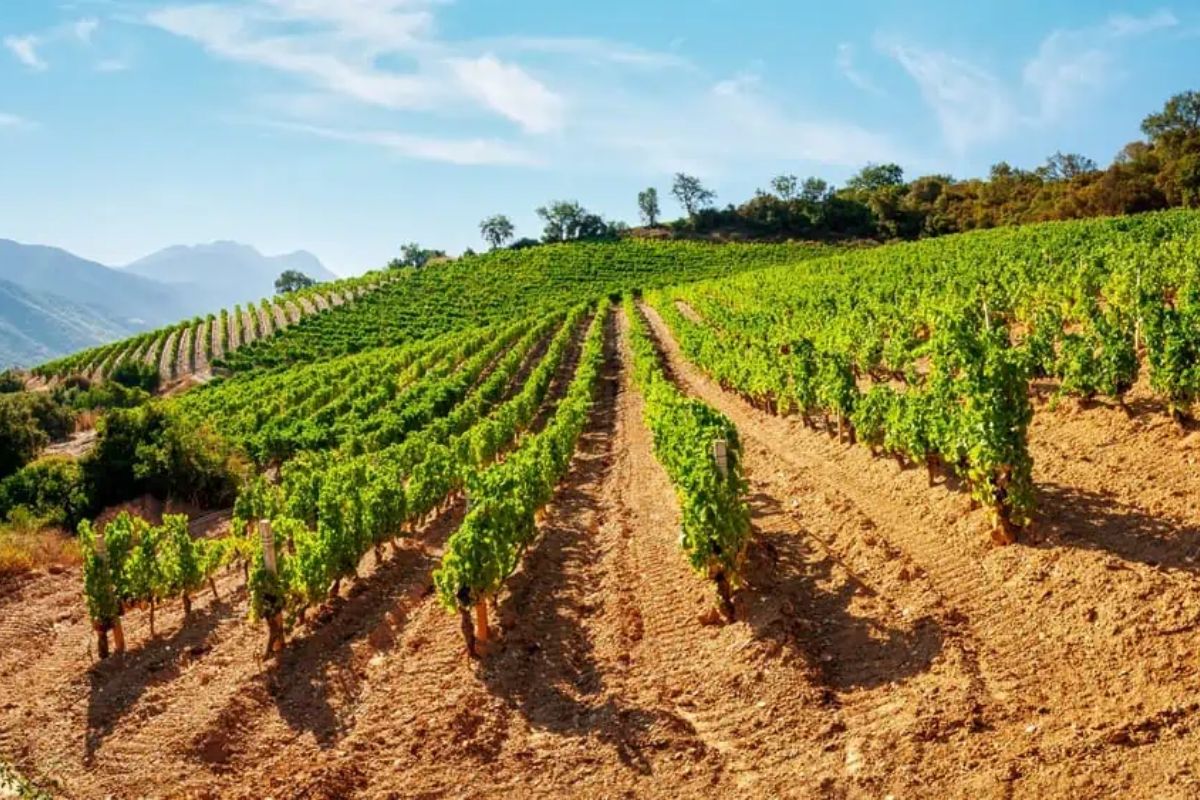California Welcomes New Organic: As you drive through the rolling hills of California wine country, a new sight catches your eye – the pristine vineyards of the recently acquired Fox Hill Vineyards. This addition brings a breath of fresh air to the region, boasting unique grape varieties that set it apart from the rest.
The winery’s dedication to organic viticulture is not just a trend but a way of life, presenting both challenges and opportunities for growth in the industry. Stay tuned to uncover the winemaking philosophy of Brock Cellars, the mastermind behind this new organic sensation in the heart of wine country.
Key Takeaways
- Brock Cellars’ acquisition of Fox Hill Vineyards signifies a new era in organic winemaking.
- Fox Hill’s grape varieties offer a unique Mediterranean tasting experience.
- Fox Hill’s organic viticulture certification reflects a commitment to sustainability and quality.
- Innovation, resilience, and a focus on natural processes drive growth at Brock Cellars.
Acquisition of Fox Hill Vineyards
Brock Cellars clinched the deal to acquire Fox Hill Vineyards after a meticulous selection process, solidifying their organic winery empire in May 2023. This strategic move by Chris Brockway, the visionary behind Brock Cellars, marked a significant milestone in their journey. Having sourced grapes from Fox Hill Vineyards since 2013, the acquisition was a natural progression for Brock, especially after he took over the vineyard’s management in 2021 following the sad demise of Lowell and Barbara Stone.
The integration of Fox Hill Vineyards into the Brock Cellars family not only expands their reach but also upholds their commitment to organic winemaking. The seamless transition ensures that the legacy of Fox Hill Vineyards continues to thrive under the stewardship of Brock Cellars. With a shared passion for sustainability and quality, this acquisition cements Brock Cellars’ position as a trailblazer in the organic winery scene, promising exciting new horizons for wine enthusiasts to explore.
Unique Grape Varieties
Venture into the unique world of grape varieties at Fox Hill Vineyards, where Italian, Portuguese, and Spanish grapes take center stage, offering a refreshing departure from the typical Californian Cabernet Sauvignon and Chardonnay. The vineyard’s commitment to these lesser-known varietals creates a captivating tasting experience unlike any other in California. Here’s what makes Fox Hill’s grape selection stand out:
- Nero d’Avola: Hailing from Sicily, this grape produces robust red wines with flavors of dark fruit and spices.
- Trebbiano: An Italian white grape known for its crisp acidity and fresh citrus notes, perfect for producing vibrant white wines.
- Sangiovese, Cortese, and Dolcetto: These traditional Italian grapes offer a range of styles, from the bold and tannic Sangiovese to the light and fruity Dolcetto, showcasing the diversity of Fox Hill’s offerings.
Each sip at Fox Hill Vineyards is a journey through the rich tapestry of Mediterranean flavors, inviting wine enthusiasts to expand their palates and discover new favorites.
Commitment to Organic Viticulture
Amidst the challenges of drought and the quest for sustainability, Fox Hill Vineyards has successfully transitioned to organic viticulture, culminating in their recent CCOF certification in January 2024. This certification marks a significant milestone in their journey towards eco-conscious winemaking. By embracing organic viticulture, Fox Hill Vineyards demonstrates a steadfast commitment to environmental stewardship and producing high-quality grapes.
Transitioning to organic practices involves meticulous care for the land and vines. Fox Hill Vineyards employs natural fertilizers, cover crops, and integrated pest management techniques to promote soil health and biodiversity. These sustainable methods not only benefit the environment but also enhance the overall terroir of their wines.
Furthermore, Fox Hill Vineyards’ dedication to organic viticulture extends beyond mere certification. They view it as a holistic approach to winemaking, reflecting their values of authenticity and respect for nature. As a result, every bottle from Fox Hill Vineyards not only delights the palate but also embodies a deep-rooted commitment to sustainable agriculture.
Challenges and Growth
Facing both challenges and opportunities, Fox Hill Vineyards navigates the complexities of organic farming with a spirit of resilience and innovation. The transition to organic farming has presented its share of hurdles, such as the separation of the Primitivo grape variety. Despite setbacks, Brockway embraces the learning process and remains committed to experimentation, introducing Sicilian grape varieties like Frappatto, Catratto, and Grillo.
This dedication to diversification showcases a forward-thinking approach that sets Fox Hill Vineyards apart in the industry. The growth of the vineyard isn’t just about expanding acreage but also about expanding knowledge and pushing boundaries in sustainable viticulture.
Key Points for Consideration:
- Learning from Setbacks: Understanding the challenges faced in transitioning to organic farming.
- Innovative Experimentation: Introducing new grape varieties to enhance diversity and sustainability.
- Forward-Thinking Approach: Embracing growth through knowledge expansion and sustainable practices.
Also Read: SB 403 California Stand Against Caste Discrimination
Winemaking Philosophy of Brock Cellars
Brock Cellars’ winemaking philosophy embodies a dedication to natural processes, showcasing a focus on native fermentation and organically grown grapes with minimal intervention. This approach allows the true essence of the grapes to shine through in each bottle of wine produced. By prioritizing native fermentation, Brock Cellars harnesses the natural yeast present on the grape skins to initiate the fermentation process, adding layers of complexity and unique flavors to their wines.
Furthermore, Brock Cellars’ commitment to organically grown grapes ensures that each vineyard is treated with the utmost care, avoiding synthetic pesticides and herbicides. This sustainable approach not only benefits the environment but also translates into wines that are a pure expression of the terroir from which they originate.
The selection of grape varieties such as Zinfandel, Carignan, Chenin Blanc, and Grenache Gris reflects Brock Cellars’ dedication to cultivating distinctive and lesser-known grape varieties. This focus on unique grapes, combined with sustainable winemaking practices, sets Brock Cellars apart as a trailblazer in the world of organic winemaking.
Conclusion Of California Welcomes New Organic
You’ve just scratched the surface of California’s newest organic winery sensation! From the acquisition of Fox Hill Vineyards to their unique grape varieties and commitment to organic viticulture, Brock Cellars is making waves in the wine industry.
Despite challenges, they continue to grow and thrive, sticking to their winemaking philosophy. Keep an eye out for their innovative approach and exceptional wines – Brock Cellars is definitely a name to remember in the world of organic winemaking!
Our Reader’s Queries
What is the history of the California wineries?
In 1769, the California wine industry took root as Padre Junipero Serra initiated a chain of missions, starting in San Diego with the planting of grape seeds and vines. Expanding over 600 miles to Sonoma in the north, its success can be attributed to various contributors.
Who is the father of California wine?
Agoston Haraszthy (Hungarian: Haraszthy Ágoston, Spanish: Agustín Haraszthy; August 30, 1812 – July 6, 1869) emerged as a Hungarian American nobleman, adventurer, writer, town-builder, and pioneering winemaker in Wisconsin and California. Often hailed as the “Father of California Wine,” his legacy spans various roles and contributions.
Why does California have so many wineries?
California’s extended growing season, marked by warm days and cool nights, proves ideal for grapevines. The state’s diverse microclimates empower growers to craft a broad spectrum of wines. Consistent year-round sunshine emerges as a pivotal factor fueling California’s flourishing wine industry.
Why California is called the wine country?
Situated in the northern San Francisco Bay Area, Wine Country is a globally recognized premier wine-growing region in California. Renowned for its wineries, Michelin-starred restaurants, boutique hotels, luxury resorts, historic architecture, and rich culture, the region stands as a symbol of excellence.



